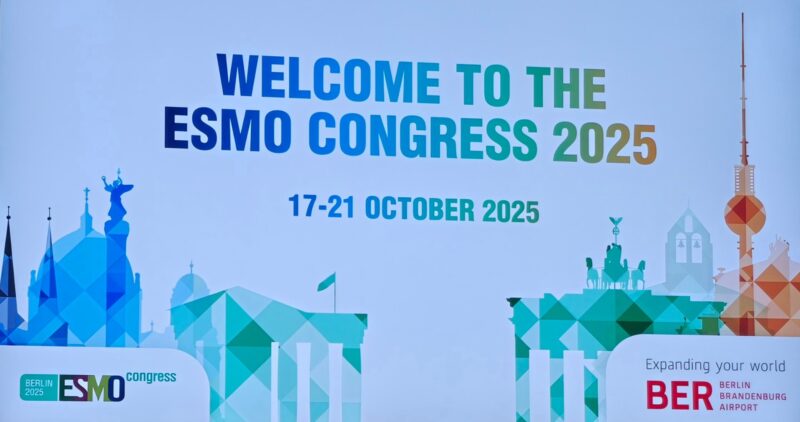Olubukola Ayodele, Breast Cancer Lead at University Hospitals of Leicester NHS Trust, shared a post on LinkedIn:
“Just arrived in Berlin for ESMO 2025! Excited for a few days of learning, sharing ideas, and connecting with colleagues from around the world, all united in advancing cancer care. Let’s make it count.
This is one of the few meetings that brings together so much transformative science and genuine collegial energy.
This year’s breast cancer abstracts are particularly strong with several results that could reshape practice, but also raise new questions about sequencing, cost, and patient selection.
Here are a few of the studies I’m watching closely, with some thoughts on their pros and cons.
1. DESTINY-Breast05 (T-DXd vs T-DM1 in high-risk HER2+ early disease)
Pros: Head-to-head superiority of T-DXd over T-DM1 in patients with residual disease after neoadjuvant therapy is a major step forward. Positive survival trends and consistent efficacy suggest T-DXd could become the new adjuvant standard.
Cons: A key concern is what happens when patients relapse after adjuvant T-DXd. Most metastatic options (T-DXd, Dato-DXd, or other topoisomerase-I ADCs) share similar mechanisms. Moving T-DXd earlier may limit future choices, underscoring the need for new post-progression strategies such as HER2-low regimens, bispecifics, or novel payloads.
2. ASCENT-03 (Sacituzumab govitecan + pembrolizumab in PD-L1+ TNBC)
Pros: Builds on ASCENT-04, confirming the value of ADC-immunotherapy combinations. OS benefit could shift 1L treatment for PD-L1+ metastatic TNBC.
Cons: Combining two high-cost drugs raises feasibility and access issues. Longer follow-up is needed to confirm safety and durability.
3. evERA (Giredestrant + everolimus vs standard ET/everolimus in HR+/HER2- MBC)
Pros: Positive results for an oral SERD + mTOR combination after CDK4/6 failure, the first signal of benefit for an all-oral regimen.
Cons: Everolimus-related toxicity (mucositis, fatigue) may affect tolerability. OS and QoL data will determine real-world value.
4. VIKTORIA-1 (Gedatolisib + endocrine therapy in HR+/HER2- disease)
Pros: Novel dual PI3K/mTOR blockade offers broader activity than alpelisib, with manageable safety. Could expand targeted options in resistant disease.
Cons: IV administration reduces convenience; comparative data vs alpelisib or capivasertib are needed.
5. monarchE OS update (Adjuvant abemaciclib)
Pros: Confirms overall survival benefit for adjuvant abemaciclib in high-risk HR+/HER2- early breast cancer, a milestone for CDK4/6 inhibition.
Cons: Benefit remains modest and limited to certain subgroups. Cost and adherence remain barriers.
Final reflections
The science this year is exceptional, but translation into practice will require pragmatic thinking: who benefits most, how to manage toxicity, and how to ensure equitable access across different health systems.
If you’re in Berlin, let’s connect, I’d love to hear your take on which data feel truly practice-changing versus promising but preliminary.
Follow me to be updated.”

More posts featuring Olubukola Ayodele.


